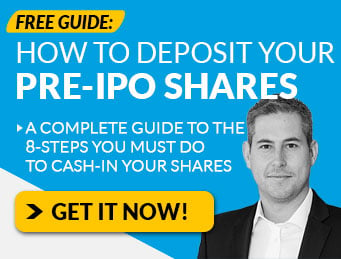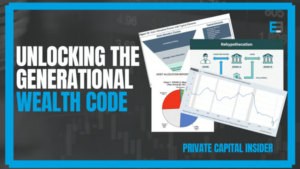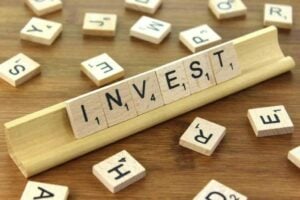As much as we’d all like a magic spreadsheet that tells us definitively if a deal is a “good deal” or not…
There’s no shortage of ways a company can fail. It’s just the name of the game when it comes to investing in startups.
But of course, we want to reduce the risk we take as much as possible… and the biggest risk I want to avoid is the risk that comes from investing in lazy, dishonest, or outright criminal people.
Which brings us to what might be the most important question we must answer before investing in any deal…
How do we discover someone’s true character before we give them money?
Today, we’re going to discuss a simple framework we use during our due diligence process when we interview management teams.
Questions to Ask Management Before Investing
At the end of the day, startups are a high-risk and (hopefully) high-reward opportunity.
However, in the face of perpetual uncertainty, there is one thing that is almost guaranteed…
There’s often a large gap between the assumptions made on the pitch deck in the beginning of the business and what actually happens once they get into the market and start testing things. (Spoiler: more often than not, it doesn’t go as planned and the team will have to make adjustments, or pivot entirely).
This means we need to focus on the things we are confident will not change, and will likely stay constant regardless of what happens in the market.
By and large, the most stable system in any business is the character of the people who run it.
And our job is to figure out – as quickly as possible – who is “on the bus.”
According to Robert McKee, author of Story: Substance, Structure, Style, and the Principles of Screenwriting:
“True character is revealed in the choices a human being makes under pressure – the greater the pressure, the deeper the revelation, the truer the choice to the character’s essential nature.”
Startups are probably one of the most stressful and high pressure environments someone could subject themselves to…
And we need to know how this person is going to behave when the stakes are high.
However, most investors typically haven’t had enough experience building – or investing in – startups to know how to figure out the nature of a founders character in advance…
But according to legendary angel investor, Jason Calcanis, there are four critical questions every investor must answer…
- Why has this founder chosen this business?
There are some really bad answers to the question “why did you decide to start this company?”…
But the worst two are “To make money” and “Because [Successful Company] doesn’t do it.”
Let’s unpack why that is…
First, if the founder is purely motivated by financial returns, we have to ask ourselves an important question about their character…
Namely, “what lines are they willing to cross in pursuit of financial returns?”
Also, it’s a long, slow, painfully hard road to build a startup and “get rich”…
So, if the founders are purely profit driven, they’ll quickly realize there are far easier – and more certain – ways to make money than a startup.
With regards to the second bad answer, the point of contention is the difference between building “features” – which are impossible to defend – and building a real company with a real moat.
If the founders are focused on features, at best, they might be able to sell it to the incumbent. But usually what happens is this:
- The startup burns through piles of investor capital to prove out a “feature” as viable…Then, the incumbent says “thanks for all the free research and development. We’re going to add that feature to our business and crush you”…
Something we’ve seen Facebook repeatedly do to its challengers.
Which brings us to the next question…
- How committed is this founder?
One of my favorite quotes of all time comes from the original Titan, John D. Rockefeller:
“I do not think that there is any other quality so essential to success of any kind as the quality of perseverance. It overcomes almost everything, even nature.”
One of the big problems with early-stage companies is the very real risk that a better-funded competitor will beat them to it.
Because the bigger the prize, the stiffer the competition. And if the management team isn’t up for a long war against the status quo, chances are, they’re probably going to give up too soon and sell too early (or go to zero).
Instead, we must look for founders who have tremendous conviction in their idea, and are willing to “crawl over broken glass” to reach the finish line.
Which brings us to…
- What are this founder’s chances of succeeding in this business—and in life?
No matter what you think about Jeff Bezos, there’s simply no question that he will succeed at anything he does.
For Bezos, he believes it’s possible to become great at virtually anything, if you can both recognize the level you need to get to and accurately estimate how long it will take to make it (which is much harder than people realize).
According to Bezos:
“To achieve high standards yourself or as part of a team, you need to form and proactively communicate realistic beliefs about how hard something is going to be.”
To this end, as investors, we want a leadership team who understands how hard what they’re setting out to do really is…
And more importantly, are willing to set proper expectations with their investors so they know what they’re in for.
Also according to Bezos:
“Because in order to do hard things well, you must have integrity and competence. That means doing what you said you were going to do — and delivering.”
Lastly…
- What does winning look like in terms of revenue and my return?
Again, we should be okay with our investments going to zero. That’s the risk we signed up for.
But we also want to go into a deal with clear definitions about what success looks like.
Naturally, we all want to see financial returns from our investment activity. But the only way to get the business to an exit is to be relentless about delivering value to the customer.
To this end, having clarity around the non-financial success metrics of the business is crucial.
If you’re familiar with Jim Collin’s seminal book, Good to Great, you might be familiar with the “big hairy audacious goal” or “BHAG”…
An ambitious goal that should take 10 – 25 years to accomplish.
And to recap the first question, the goal shouldn’t be related to a purely financial outcome.
Instead, we’re looking for founders who have a bigger vision for their customers, community, and the world.
Why? Because the biggest returns typically come from solving the hardest problems.
That’s why we want the vision of the business focused on creating value by solving problems and creating results…
And then, from there, understand its ability to capture some portion of the value it creates.
But no matter how much due diligence we do…
No matter how many financial models we build…
Or how much we agonize over the possibilities…
At some point, we must accept that early-stage investing is both an art and a science.
Our speculative investing activity will eventually come down to one simple question:
“Do I feel good about making this investment?”
To be clear, this doesn’t mean you should invest purely on emotions and forgo due diligence…
But after you’ve looked at enough deals – and interviewed enough founders – you’re going to start to develop a “feel” for the deal.
When I look back at some of the worst deals I’ve done, it was almost always the ones where my gut told me to pass, but I rationalized my way into it.
And yes, there’s been plenty of ones where I felt good about it that went poorly. But long term, the better you get at calibrating – and then trusting – your intuition, the more likely it is you’ll put yourself in a position to profit.
Yours for investing equality,
Jordan Gillissie – CEO
Equifund


